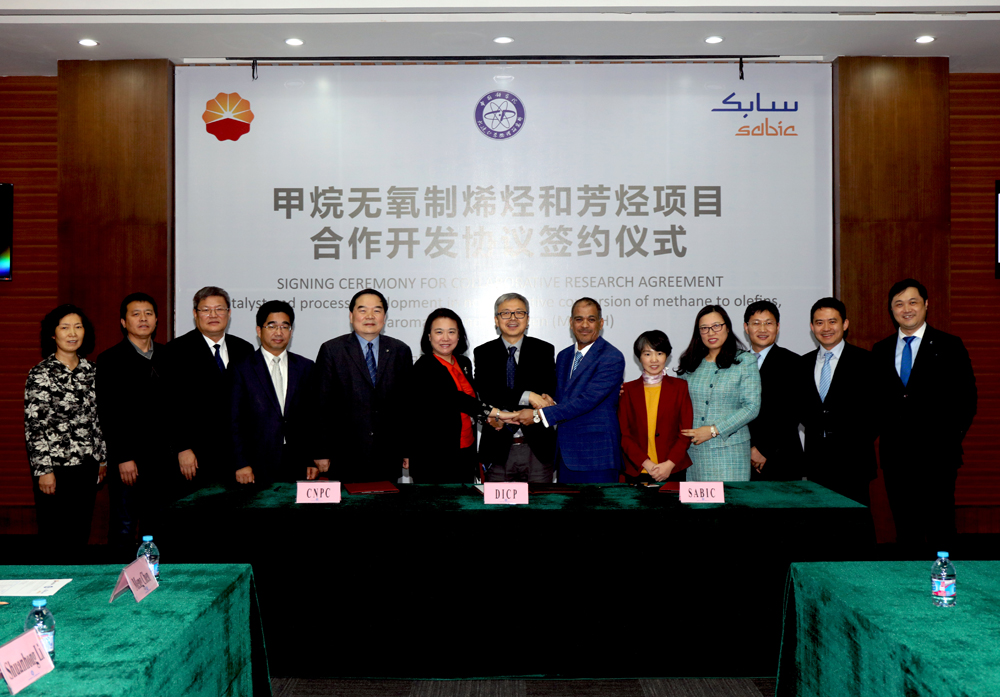


A signing ceremony for an agreement on cooperative research and development of "direct, nonoxidative conversion of methane to olefin and aromatics” is held at the Dalian Institute of Chemical Physics (DICP) in Dalian on December 22, 2016. (PHOTO BY CAS)
A signing ceremony for an agreement on cooperative research and development of "direct, nonoxidative conversion of methane to olefin and aromatics” was held at the Dalian Institute of Chemical Physics (DICP) in Dalian on December 22 of last year.
The joint research and development project was sponsored by DICP of the Chinese Academy of Sciences, the China National Petroleum Corporation (CNPC) and the Saudi Basic Industries Corporation (SABIC).
The cooperative research agreement was signed on behalf of the three parties by Professor Yang Xueming, Deputy Director of DICP, Ms. Wang Xinge, General Manager of China Huanqiu Contracting & Engineering Corporation (a subsidiary of CNPC), and Dr. Atiah S. Al-Ghamdi, director of catalyst technology at SABIC.
The joint project was developed on the basis of the process of the direct and nonoxidative conversion of methane to olefin and aromatics, invented by a team led by Professor Bao Xinhe.
By activating methane under anaerobic conditions and converting methane directly to olefins, aromatics and hydrogen, the process has advantages over the conventional processes for natural gas conversion, which usually require high energy consumption and produce high emissions.
In addition to shortening the reaction route, the process developed by Professor Bao’s team does not emit carbon dioxide and achieves carbon atom efficiency of approximately 100 percent.
The process was first reported in the journal Science in May 2014, and has since been systematically studied with a focus on both fundamental scientific questions raised by the process and its development potential for industrial technology.
A series of breakthroughs have been made in improving the stability of the catalyst, methods for catalyst preparation and the design of new reactors. In March 2016, CNPC, SABIC and DICP signed a memorandum of cooperation on the development of the process.
The official cooperative research and development agreement signed on December 22 indicates that the project has advanced to substantive cooperation. The tripartite cooperation could potentially accelerate the industrialization of the technology with great effect on the petrochemical industry in China and the world as a whole.
Source: english.cas.cn